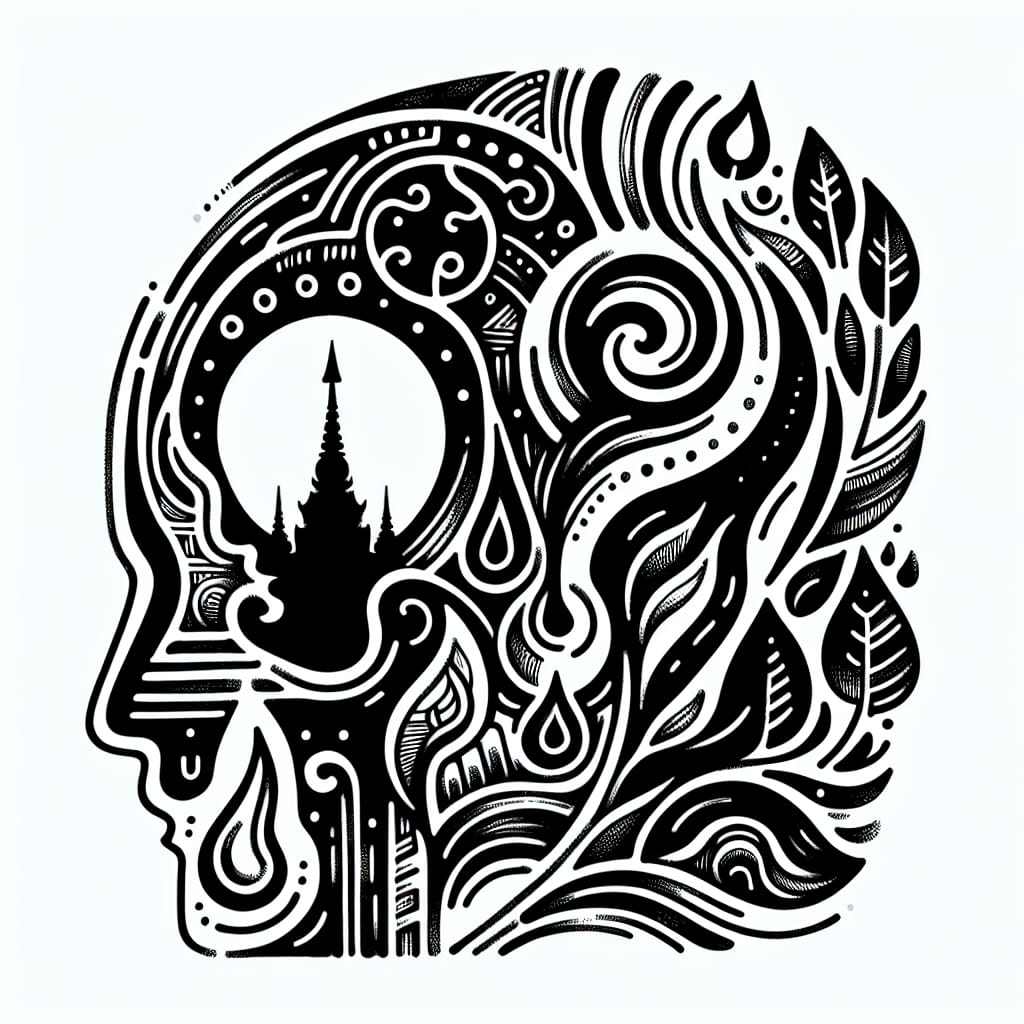· word of the day · 4 min read
Unlocking Thai Culture: The Power of the Word Jai in Language Learning
Discover the cultural richness of the Thai language by exploring the versatile word jai which means heart or mind and is key to understanding Thai emotions and values.

Discovering Unusual Thai Words: A Gateway to Deeper Language Mastery
Learning a new language is like opening a door to a new world. Every word you learn is a key to understanding the culture, history, and mindset of its speakers. While mastering grammar and vocabulary is essential, discovering unusual words can offer a more profound grasp of the language. These words often carry rich cultural significance, unique nuances, and fascinating stories. Today, we’re going to explore one such intriguing word in the Thai language that will not only expand your vocabulary but also deepen your appreciation of Thai culture.
The Word: ใจ (Jai)
Pronunciation and Meaning
The Thai word ใจ, pronounced “jai,” is one of the most versatile and culturally significant words in the Thai language. At its core, “jai” means “heart” or “mind.” However, its usage extends far beyond its literal meaning, permeating various aspects of Thai speech and expression.
Cultural Significance
In Thai culture, the heart is considered the seat of emotions, thoughts, and intentions. Therefore, “jai” is often used to describe various emotional states and personality traits. Understanding how “jai” is used can offer deep insights into Thai values and social norms.
Examples of Usage
ใจดี (jai dee) - “Good-hearted” or “kind.” This describes someone who is compassionate and generous.
- Example: เขาเป็นคนใจดีมาก (Khao pen khon jai dee maak) - “He is a very kind person.”
ใจเย็น (jai yen) - “Cool-hearted” or “calm.” This describes someone who is patient and composed.
- Example: ในสถานการณ์นี้ คุณต้องใจเย็น (Nai sataankan nee, khun tong jai yen) - “In this situation, you need to stay calm.”
ใจร้อน (jai ron) - “Hot-hearted” or “impatient.” This describes someone who is easily agitated or quick-tempered.
- Example: เขาเป็นคนใจร้อน (Khao pen khon jai ron) - “He is an impatient person.”
เสียใจ (sia jai) - “Heartbroken” or “sorry.” This describes someone who is sad or regretful.
- Example: ฉันเสียใจที่ทำให้คุณเสียใจ (Chan sia jai tee tam hai khun sia jai) - “I’m sorry for making you sad.”
เข้าใจ (khao jai) - “Understand.” This is used to describe the act of comprehending something.
- Example: ฉันเข้าใจแล้ว (Chan khao jai laeo) - “I understand now.”
Idiomatic Expressions
Thai language is rich with idiomatic expressions involving the word “jai.” Here are a few:
หนักใจ (nak jai) - “Heavy-hearted.” This means feeling worried or burdened.
- Example: ฉันหนักใจเรื่องงาน (Chan nak jai rueang ngaan) - “I am worried about work.”
เบาใจ (bao jai) - “Light-hearted.” This means feeling relieved or unburdened.
- Example: ฉันเบาใจที่ได้ยินข่าวดี (Chan bao jai tee dai yin khao dee) - “I am relieved to hear the good news.”
ใจแตก (jai taek) - “Broken-hearted.” This is often used to describe someone who is morally corrupted or led astray.
- Example: เขาใจแตกเพราะเพื่อน (Khao jai taek phro phuean) - “He was led astray because of his friends.”
Role in Literature and Folklore
The concept of “jai” frequently appears in Thai literature and folklore, often symbolizing the emotional and moral core of characters. In traditional stories, a character’s “jai” is a reflection of their true nature, influencing their actions and fate. For instance, a hero with a “jai dee” (good heart) is often rewarded, while a villain with a “jai rai” (bad heart) faces consequences.
Enriching Your Language Learning Journey
Learning words like “jai” can significantly enrich your language learning experience. These words are not just vocabulary; they are keys to understanding the cultural and emotional landscape of Thai speakers. By mastering such words, you can communicate more effectively and empathetically, making your interactions more meaningful.
Moreover, exploring these words can make your learning journey more enjoyable and engaging. Instead of merely memorizing lists of words, you delve into the stories, values, and emotions that these words carry. This holistic approach can make language learning a more immersive and rewarding experience.
Conclusion
Uncovering unusual words in a new language is like finding hidden gems. The Thai word “jai” is one such gem that offers a window into the heart and soul of Thai culture. By understanding its various meanings and uses, you can gain a deeper appreciation of the language and the people who speak it.
Ready to dive deeper into the Thai language? Download Glosa for learning Thai and start your journey today! Download Glosa
Happy learning!




